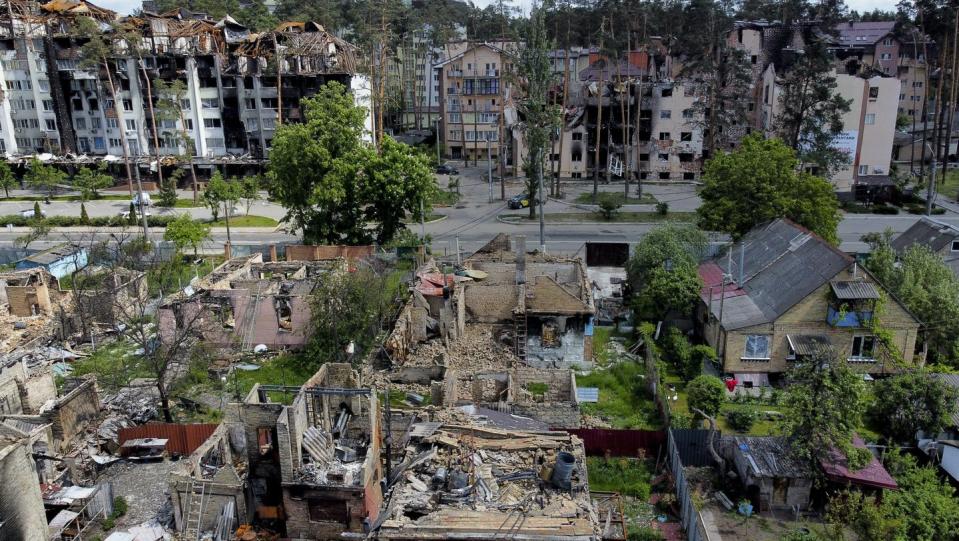Other frontlines: Third-country nationals fleeing the war in Ukraine are not welcome in EU

After having to flee the war in Ukraine, most third-country nationals are now trapped in legal limbo, with little to no options to stay in Europe.
Despite all the protection, residency programs and aid for Ukrainian nationals, very little is offered to third-country nationals who fled the same war.
Third-country nationals have to navigate the bureaucracies of asylum alone or through Telegram or WhatsApp mutual support groups. And if they can’t find a way to stay in the EU, whether it be through a successful asylum claim or student visas, most will be deported back to their home country.

Unprotected and displaced
There were approximately 60,900 undocumented people and 77,000 international students in Ukraine before the war.
When the invasion started, most of these people had to flee, entering neighbouring European countries and becoming third-country nationals.
Third-country nationals are defined by the EU as “any person who is not a citizen of the European Union within the meaning of the Art. 20(1) of TFEU and who is not a person enjoying the European Union right to free movement, as defined in Art. 2(5) of the Regulation (EU) 2016/399 (Schengen Border Code).”
Under this definition, Ukrainians in the EU are also third-country nationals because they are not EU citizens and they do not enjoy the EU’s right to free movement. Despite this, they have not been referred to, or treated as third-country nationals, like non-Ukrainian, non-EU citizens are.

The activation of the EU’s Temporary Protection Directive — which allows Ukrainian refugees the right to live and work in the EU for up to three years — has put Ukrainian nationals into an exceptional category that gives them rights and protections without having to go through the bureaucratic asylum-seeking process.
In essence, Ukrainians have been granted refugee status for three years in the EU without applying through the typical process. Non-Ukrainian third-country nationals — like those from African countries — were excluded from this scheme and must apply for asylum regularly if they want to stay.
‘Barbarity of racism’
NGOs and activists describe the neglect of third-country nationals as the “barbarity of racism.”
Berlin’s Refugee Council and other NGOs held a protest on May 17 in front of the Bundestrat in Berlin (a German legislative body) to demand equal rights for third-country nationals fleeing Ukraine.
They argue that, despite Ukrainians receiving unbureaucratic access to residence permits, work permits and social benefits in Germany, many third-country nationals are excluded from the right to temporary protection. They demand “equal treatment for all people who have fled Ukraine.”
Juilianne Gebel, co-founder of NGO Internationals from Ukraine and Friends, told DW the exclusion of third-country nationals shows there are “different treatments of different refugees depending on passport.”
‘For Ukrainian nationals only’
In late April 2022, I went on a research trip to Warsaw, Krakow and Berlin and observed that, at the central train stations where most of the NGOs and assistance for refugees from Ukraine were concentrated, the majority of the support was only for Ukrainian nationals.

Upon entry to Warsaw Central Station, there is a table well-staffed with volunteers with a binder of resources ready to help. There is even a map of the EU with daily free routes — either by bus or train — to different countries.
When asked if transportation was free for all people who fled Ukraine, the volunteers replied, “No, for Ukrainian nationals only.”

The volunteers shared that there is not much information regarding third-country nationals in the binder, which was given to them by the city.
They were told to direct questions to the “Non-UA (Ukraine) refugee” — booth, which was just a bulletin board of information in English and Ukrainian. I passed through Warsaw Central Station multiple times on three different days and never saw a volunteer at that “booth.”

Another station, Berlin Central Station, did have a very visible booth for non-UA refugees, but the volunteers there were unable to answer any questions and were only able to give away pamphlets and refer people to local NGOs for help.
While I am a researcher and not a refugee, I can imagine this sort of interaction for a third-country nationals might be quite disheartening as they are, once again, met with someone who cannot help them.
For third-country nationals, the lack of protection and rights afforded by the EU, the lack of information available to them and the inability for volunteers to assist them illustrates the invisible violence of the bureaucracies of asylum.
Third-country nationals are left powerless in the face of bureaucracies of asylum to suffer the barbarity of racism with only the help of others in the same situation.
This article is republished from The Conversation, a nonprofit news site dedicated to sharing ideas from academic experts. It was written by: Yvonne Su, York University, Canada.
Read more:
3 ways Vladimir Putin’s war in Ukraine is affecting the former Soviet region
Calls for ‘ethical oil’ are pushing Canada to become a petro-state
Yvonne Su does not work for, consult, own shares in or receive funding from any company or organisation that would benefit from this article, and has disclosed no relevant affiliations beyond their academic appointment.

